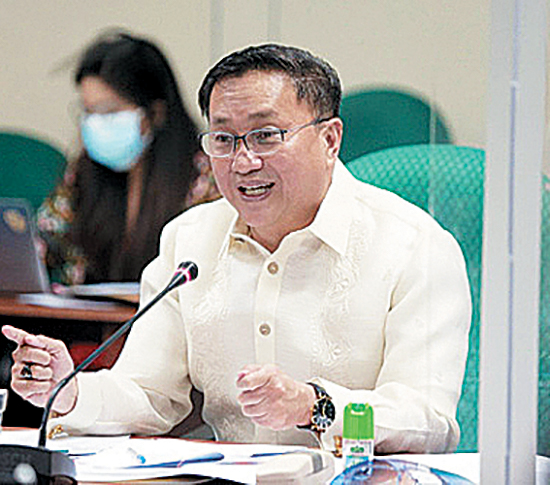Proponents of the Rental Housing Subsidy Bill in the Senate are hoping to have the measure passed when Congress briefly resumes session in May.
The measure is meant to help lower income and displaced families cope with the rising prices of basic goods and the lingering effects of the pandemic.
The Senate committee on urban planning, housing and resettlement has reported out to the plenary Senate Bill 2393 or the proposed “Rental Housing Subsidy Program Act” late last year but it was not approved due to lack of time and the huge legislative load of the chamber. It is the consolidated version of three similar bills filed by Senators Leila de Lima, Sonny Angara, Christopher “Bong” Go, Bong Revilla, and Francis Tolentino.
Tolentino, who chairs the committee and principal sponsor of the bill, said he would try to squeeze in the Senate calendar the approval of the measure when Congress resumes session on May 23 to June 3.
“But while we have not yet passed it (SB 2393), we have been able to request, encourage, prod the DHSUD (Department of Human Settlements and Urban Development) to implement within their mandate a similar rental subsidy program, though in more modest scale,” Tolentino told Property Report.
P50 million funding
He said he managed to have a P50 million funding for what could be considered the “pilot” program for the bill included in the 2022 General Appropriations Act that will be implemented in the National Capital Region to cover about-to-be evicted families who have some regular income.
He said he intends to check with the DHSUD on the progress of the program when session resumes in May even as he stressed the rental subsidy should continue even after the pandemic as paying rent and other monthly fees is a recurring problem for informal settlers and other poor families.
The bill cited the declared the policy of the State to promote a just, equitable, and inclusive urban development through programs providing adequate social services, broader housing options, livelihood and employment, and an improved quality of life for the Filipino people, especially the underprivileged; provide an innovative housing program that makes available affordable, livable, and decent housing, as well as access to basic social services, especially for the underprivileged; protect the urban poor from the impact of immediate dislocation due to eviction and demolition arising from government projects and disasters; and provide interim housing for dislocated families due to natural and man-made disasters and calamities.

Informal settlers
The measure identifies informal settler beneficiaries (ISBs) as individuals or households living in their own house or renting a dwelling unit without the consent of the lot owner; living in danger areas as defined under Republic Act 7279 or the “Urban Development and Housing Act of 1992”; living in government-owned land to be used for government infrastructure projects; living in protected forest areas except for indigenous peoples; and living in areas of priority development as declared by the government; or in other government public lands or facilities not intended for human habitation.
Under the bill, the subsidy refers to partial financial assistance provided by the government to eligible program beneficiaries to rent accommodation in the private rental market.
The amount, which shall not exceed the rates as regulated under Republic Act 9653 or the “Rent Control Act of 2009,” is meant to provide social protection and support to ISBs in accessing the formal housing market.
It shall be made an option to address the temporary relocation of displaced families due to natural and man-made disasters,
Eligible ISBs shall receive a flat rental subsidy rate of P3,500 for those living in Metro Manila, and a rental subsidy rate to be jointly determined by the DHSUD and the National Economic and Development Authority (NEDA) for those living in all other regions, taking into consideration the prevailing minimum wage and rental rates per region.
The rate shall be jointly reviewed by DHSUD and NEDA “to conform with prevailing economic conditions.”
Rental subsidy shall be granted to eligible beneficiaries until the date of completion of the permanent housing project intended for them or upon their actual transfer to the permanent housing project, whichever comes first.
In case of delay in the completion of the permanent housing project, the rental subsidy shall be extended with the agency implementing the project bearing the cost of the extended rental subsidy.
The eligible ISBs are required to vacate the informal settlement area in which they are presently living and transfer or relocate to a safer, decent, and formal settlement and sign a maximum five- year contract with the government.
